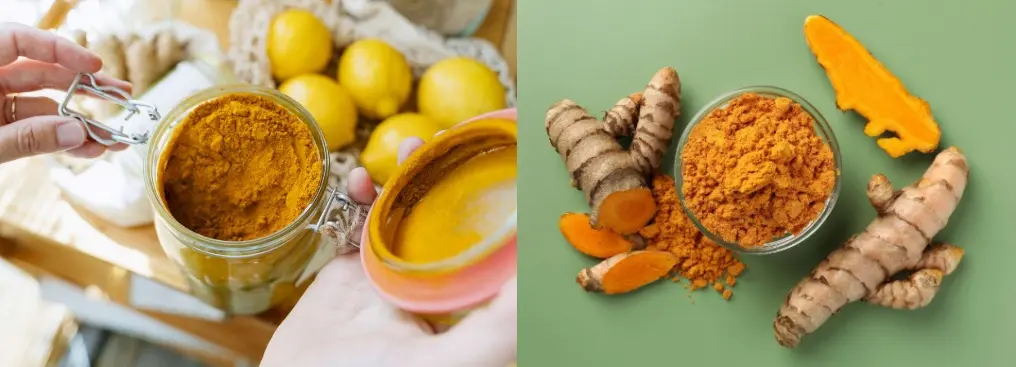Curcumin Dosage For Health
1.What is Curcumin?
Curcumin, the main active compound found in turmeric, is known for its anti-inflammatory and antioxidant properties, that may help support overall health and reduce the risk of chronic diseases.
Turmeric (Curcuma longa) is gaining popularity as a natural way to fight inflammation and boost your mood. But what is it actually good for? And what's the best way to take curcumin?
Food and drink
You can add turmeric powder to food. It's often used to flavor dishes like curry, soups, and roasted meat. One of the most traditional ways to consume turmeric is in a warm drink known as golden milk.
While tasty, your body doesn't absorb turmeric very well from food. Also, there's actually very little curcumin (the main active ingredient in turmeric) in each teaspoon of turmeric powder. This means that adding turmeric to your food or drink may not be the best way to benefit from it.

Supplements
Turmeric and curcumin supplements are available over the counter. They come in different forms, such as gummies, tablets, and capsules. And many of these supplements are specially formulated to help the body absorb them. This makes oral supplements the best choice for most people looking to maximize the benefits of turmeric.
Most supplements contain turmeric extract. The extract contains much more curcumin than turmeric powder. Supplements may also contain fat compounds or use a process called nanoformulation to help with absorption. Nanoformulation makes it easier for the body to absorb turmeric by breaking it down into very tiny pieces. In fact, certain curcumin formulations may boost the amount you absorb by up to 20 times compared to regular curcumin.
2.How much curcuminshould you take daily?
The average recommended daily dose of curcumin is up to 3 mg per kg of body weight. This is according to the Joint FAO/WHO Expert Committee on Food Additives. For a 150 lb person, this would be around 200 mg of curcumin per day.
Keep in mind that many supplements will list the turmeric content. This is not the same as the curcumin content. Most clinical studies used a turmeric dose of 500 mg to 2,000 mg daily. But doses up to 8,000 mg per day are generally considered safe. Look for products that list the actual amount of curcumin in the supplement for best results.
Doses of over 8 grams of curcumin per day are not recommended due to the risk of side effects.
3.Should you take curcumin with food?
Yes, curcumin is best absorbed when taken with food. Fatty foods, such as eggs and vegetable oils (such as coconut oil or olive oil), are the best to combine with turmeric. This is because they contain a compound called lecithin. Lecithin helps the body absorb turmeric.
Another ingredient that helps the body absorb turmeric is black pepper. Black pepper contains a chemical compound called piperine. It helps the body absorb as much as three times more curcumin when you take the two together.

4. What time should you take curcumin?
Food helps your body absorb turmeric. So the best time to take it is shortly before or after a meal or large snack. It's also a good idea to divide your daily turmeric dose into two doses and take them 8 to 12 hours apart. This will help increase absorption and keep turmeric levels steady in the body. Dividing the dose may also help reduce possible side effects.
5.What are the benefits of curcumin?
Turmeric, and curcumin in particular, has been touted as having numerous health benefits. More research is needed, but possible turmeric benefits include:
Reducing swelling
Fighting cancer
Boosting mood
Treating pain
Improving memory
Protecting the heart
Keep in mind: Much of the research on turmeric is on animals, not humans. This means we don't have a lot of clinical research information on turmeric. And since it has drug interactions and side effects to consider, it's best to get your healthcare team's OK before you take it.
6.Can you take curcumin with your other medications?
Turmeric may interact with some medications, including:
Blood thinners such as warfarin (Coumadin, Jantoven) or apixaban (Eliquis). The combination may increase your risk of bleeding.
Diabetic medications, such as insulin or metformin. Taking these with turmeric may cause your blood sugar to drop too low.
High blood pressure medications such as metoprolol (Lopressor, Toprol XL) or amlodipine (Norvasc). This combination may cause your blood pressure to become too low.
Acid reflux medications such as Tums or famotidine (Zantac 360, Pepcid AC). Turmeric can increase stomach acid, which can make these medications less effective.
Certain chemotherapy medications, such as cyclophosphamide and irinotecan. Turmeric may block these from working properly to fight cancer.
Nanoformulated turmeric supplements have shown fewer drug interactions than other forms of turmeric. But you should always speak to your healthcare team before starting a new supplement. This will help prevent against any potential issues.
7.What are the side effects of curcumin?
Turmeric is generally well-tolerated by most people. But it can cause side effects, including:
Diarrhea
Headache
Nausea
Rash
Yellow stool
These side effects are more common with higher doses of curcumin (1000 mg or more daily). If these symptoms occur, try taking the supplement with food if you aren't already. You can also try dividing the dose into several smaller doses or lower the dose altogether.

Contact us
8.Who should not take curcumin?
Turmeric is not advised for people who have any of the following conditions:
Pregnant or nursing
Kidney stones (past or present)
Gallstones (past or present)
Diabetes
An allergy to turmeric, ginger, or other members of the Zingiberaceae family
Speak to your healthcare team if you have any of the above conditions. They will help you decide if turmeric is safe for you.
References
https://www.cortibahealth.com/learn/how-much-curcumin-should-i-be-taking
https://www.goodrx.com/well-being/supplements-herbs/how-to-take-turmeric

 Food Additives
Food Additives









